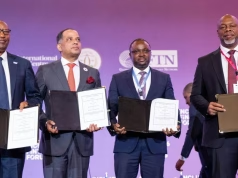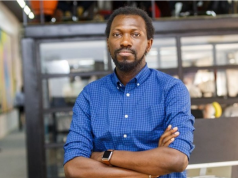As financial fraud continues to rise in Nigeria, experts are advocating for the adoption of artificial intelligence (AI) to enhance fraud detection and prevention. Tope Dare, former executive director of e-business and infrastructure at Inlaks Computers Limited, highlights the transformative potential of AI in the banking sector, emphasising its ability to analyse transaction patterns and flag suspicious activities in real time. However, he also warns of the challenges, including system bias and cybersecurity risks, that come with AI integration.
The Nigerian financial sector is grappling with a surge in fraud cases, prompting calls for the adoption of advanced technologies like artificial intelligence (AI) to combat these threats. Tope Dare, a board member of CitiData Centre Ltd. and former executive director at Inlaks Computers Limited, has championed the use of AI for early fraud detection, noting its potential to revolutionise the banking industry.
In a recent statement, Dare explained that AI is transforming the banking sector globally, changing the nature of customer-bank interactions. He cited the emergence of open-source AI models like DeepSeek, which challenge the dominance of established platforms such as ChatGPT. “DeepSeek offers cost efficiency, strong technical capabilities, and open-source access, making it a game-changer in the AI landscape,” Dare said.
AI-powered fraud detection systems, he noted, can analyse transaction patterns in real time, instantly flagging suspicious activities and preventing fraud before it occurs. However, Dare also highlighted the limitations of AI, including the risk of misinterpretations and system bias. He shared an example of a friend whose foreign bank account was deactivated during a transaction in Nigeria due to an AI-driven decision. “The system failed to consider the context, leaving him stranded until he returned home,” Dare explained.
Despite these challenges, AI continues to revolutionise banking operations. AI chatbots, such as those developed by eBanqo, provide round-the-clock customer support, handling tasks like balance checks, fund transfers, and loan applications within seconds. AI also analyses spending habits to offer personalised financial advice, enhancing customer convenience. However, Dare cautioned that the reliance on vast amounts of personal data makes AI systems attractive targets for cybercriminals. Additionally, biased training data can lead to discriminatory outcomes in loan approvals and other financial services.
To address these issues, Dare advocated for a hybrid model that combines AI automation with human oversight. “AI is here to stay, and its role in banking will only grow. However, banks must strike a balance between automation and human expertise to ensure fast, secure, and inclusive services,” he said.
The call for AI adoption in fraud detection comes amid a sharp rise in financial fraud in Nigeria. A report by the Financial Institutions Training Centre (FITC) revealed a 50 per cent increase in fraud-related financial losses and a 100 per cent surge in digital fraud incidents between Q1 and Q3 of 2024. The report attributed this rise to the growing sophistication of cyber fraud, identity theft, and insider collusion.
At the FITC Risk Round Table, themed ‘Financial System Stability, Leveraging AI for Financial Fraud Detection and Regulations,’ Dr Chizor Malize, CEO of FITC, emphasised the role of emerging technologies in combating cyber threats. “AI-driven cybersecurity frameworks and predictive tools are essential for mitigating risks and ensuring the stability of the financial system,” Malize said. She highlighted FITC’s efforts to integrate AI into training programmes and risk simulations, empowering organisations to anticipate and manage risks effectively.
The Nigeria Deposit Insurance Corporation (NDIC) also acknowledged the growing challenge of financial fraud. Represented by Amal Haruna, Director of Enterprise Risk Management, NDIC CEO Bello Hassan identified payment fraud, insider fraud, account takeovers, and identity theft as major concerns. The NDIC stressed the need for immediate action to address these threats and protect the financial system.
As financial fraud becomes increasingly sophisticated, the adoption of AI for fraud detection offers a promising solution for Nigeria’s banking sector. While AI can enhance efficiency and security, experts like Tope Dare and Dr Chizor Malize emphasise the importance of balancing automation with human oversight to address system biases and cybersecurity risks. By leveraging AI-driven tools and fostering collaboration among stakeholders, Nigeria’s financial institutions can build a more resilient and secure system, safeguarding both customers and the economy.
Follow us on Instagram.
https://www.instagram.com/businessnewsng?igsh=ZXpweTdjOGF1ZXdu

























